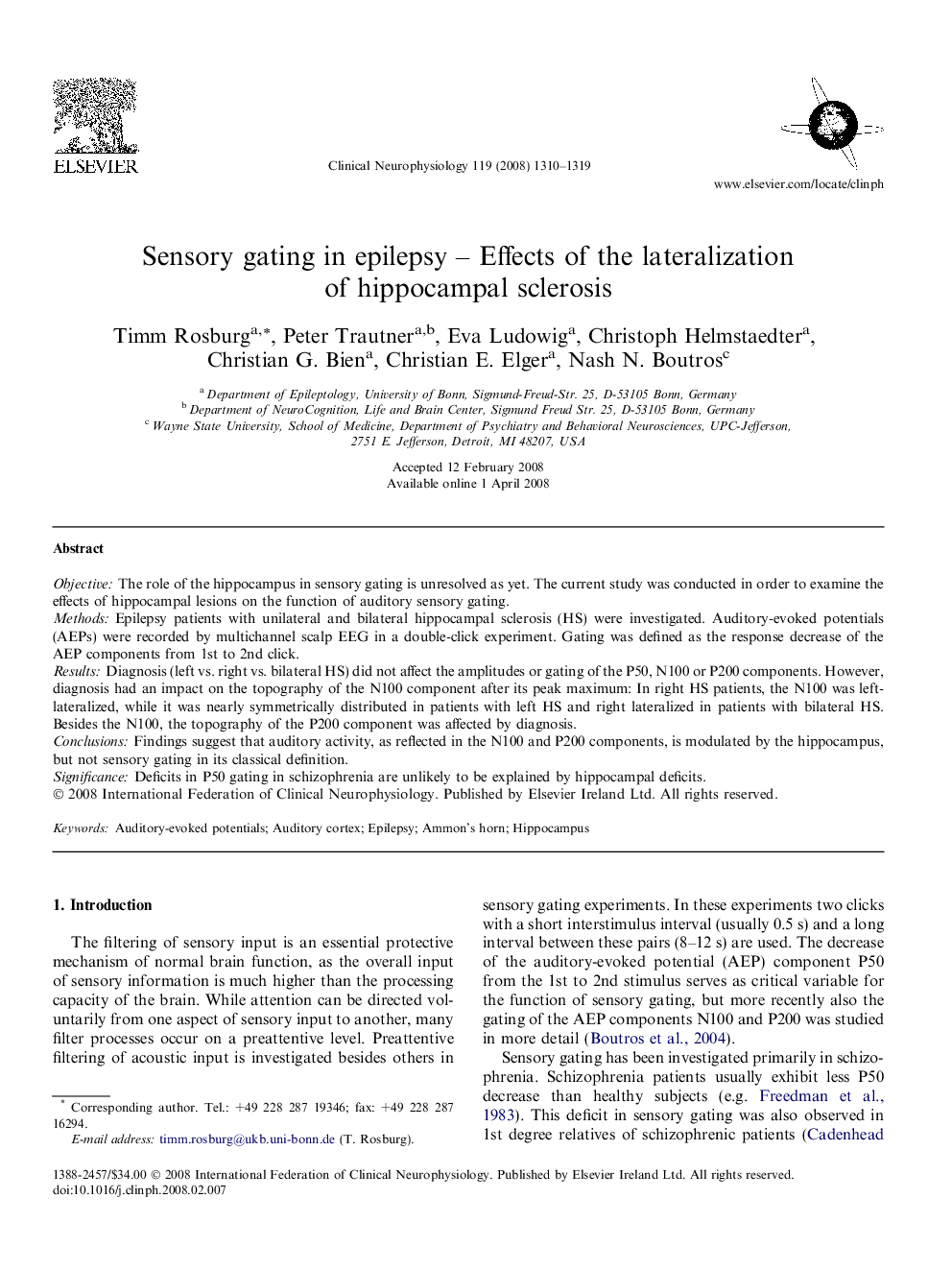| Article ID | Journal | Published Year | Pages | File Type |
|---|---|---|---|---|
| 3047449 | Clinical Neurophysiology | 2008 | 10 Pages |
ObjectiveThe role of the hippocampus in sensory gating is unresolved as yet. The current study was conducted in order to examine the effects of hippocampal lesions on the function of auditory sensory gating.MethodsEpilepsy patients with unilateral and bilateral hippocampal sclerosis (HS) were investigated. Auditory-evoked potentials (AEPs) were recorded by multichannel scalp EEG in a double-click experiment. Gating was defined as the response decrease of the AEP components from 1st to 2nd click.ResultsDiagnosis (left vs. right vs. bilateral HS) did not affect the amplitudes or gating of the P50, N100 or P200 components. However, diagnosis had an impact on the topography of the N100 component after its peak maximum: In right HS patients, the N100 was left-lateralized, while it was nearly symmetrically distributed in patients with left HS and right lateralized in patients with bilateral HS. Besides the N100, the topography of the P200 component was affected by diagnosis.ConclusionsFindings suggest that auditory activity, as reflected in the N100 and P200 components, is modulated by the hippocampus, but not sensory gating in its classical definition.SignificanceDeficits in P50 gating in schizophrenia are unlikely to be explained by hippocampal deficits.
